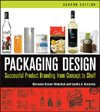Flexible pouch packaging not only can address concerns about sustainability but also has a proven track record as an effective option for moving product off shelves.
That was the message of Dennis Calamusa, President and CEO of ALLIEDFLEX Technologies, who was Thursday’s keynote speaker at Global Pouch Forum. The event is taking place May 29-31 in Clearwater, Florida.
Calamusa has dedicated the last 30 years of his career to consumer packaging and has supported the global shift toward flexible packaging innovation, including the popular standup pouch packaging format. The theme of Calamusa’s address was “Changing State of the Packaging Industry: Forward-Looking CPGs Reinventing the Status Quo through Flexible Pouch Packaging.”
“Rigid plastic is being challenged,” Calamusa noted, adding that flexible packaging can provide a transitional alternative.
For those concerned about sustainability, Calamusa noted that flexible pouch packaging – thanks to its structure – boasts a much smaller carbon footprint than rigid packaging. He cited statistics indicating that transporting rigid containers by truck can result in CO2 emissions 15-25 greater than transporting the equivalent amount of product in flexible pouches.
Just as important, consumers respond positively to flexible pouch packaging.
“[CPG] companies are not in the business to sell packaging, but packaging can create a business opportunity for them to sell more of what’s inside,” Calamusa said. “They’re realizing the package is the product in many cases.”
An example is baby food, which first started getting sold in glass jars in 1934. Calamusa said the Gerbers of the world were reluctant to change their packaging, so Calamusa’s company approached the No. 3 and No. 4 ranked brands. Those brands were willing to make the switch to flexible pouch packaging, and in so doing they created a huge shift in the industry.
Calamusa cited baby food and applesauce as examples of “products that have been around forever. What’s innovative is the packaging.”
The “refill concept” is another area in which flexible pouch packaging comes into play, and this ties again into sustainability.
Calamusa cited as one example Aveeno Daily Moisturizing Body Wash, which complements its rigid plastic bottle packaging with refills in flexible pouches. Rigid bottles use much more plastic than flexible pouches, so consumers purchasing the pouched refills are reducing plastic consumption. “We can re-use that magnificent bottle over and over again.”
Calamusa added that flexible pouch packaging is likely to gain additional green street cred as more pouches become mono-material, thus facilitating recyclability.









